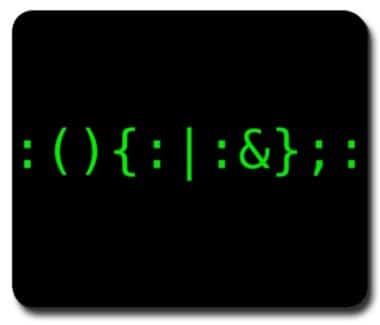This puzzle reveals that you don’t need to write a few lines of shell scripts, you would just need one line (using pipes) to achieve complex tasks. See below:
Write a bash script to calculate the frequency of each word in a text file words.txt.
For simplicity sake, you may assume:
words.txt contains only lowercase characters and space ‘ ‘ characters.
Each word must consist of lowercase characters only.
Words are separated by one or more whitespace characters.
For example, assume that words.txt has the following content:the day is sunny the the
the sunny is is
Your script should output the following, sorted by descending frequency:
the 4
is 3
sunny 2
day 1
Note:
Don’t worry about handling ties, it is guaranteed that each word’s frequency count is unique.
Submit your solution at Leetcode: https://leetcode.com/problems/word-frequency/
We are interested in one-line solutions only, a shell script (multiple line) reading each line, parsing each words and sort them would be straightforward although.
Solution – cat, tr, awk, sort
1 | cat words.txt | tr -s ' ' '\n' | awk '{nums[$1]++}END{for(word in nums) print word, nums[word]}' | sort -rn -k2 |
cat words.txt | tr -s ' ' '\n' | awk '{nums[$1]++}END{for(word in nums) print word, nums[word]}' | sort -rn -k2Solution – grep, sort, uniq, sort, awk
1 | grep -oE '[a-z]+' words.txt | sort | uniq -c | sort -r | awk '{print $2" "$1}' |
grep -oE '[a-z]+' words.txt | sort | uniq -c | sort -r | awk '{print $2" "$1}'Solution, sed, grep, sort, uniq, sort, awk
1 | sed -r 's/\s+/\n/g' words.txt | grep -v "^$" | sort | uniq -c | sort -r | awk '{print $2" "$1}' |
sed -r 's/\s+/\n/g' words.txt | grep -v "^$" | sort | uniq -c | sort -r | awk '{print $2" "$1}'Solution – awk and sort
1 | awk '{words[$1]+=1} END{for(word in words){print word,words[word]}}' RS="[ \n]+" words.txt | sort -nrk2 |
awk '{words[$1]+=1} END{for(word in words){print word,words[word]}}' RS="[ \n]+" words.txt | sort -nrk2Solution cat and awk
1 | cat words.txt | awk '{for(i=1;i<=NF;++i) { arr[$i]++; } } END { x=0; for(var in arr) {newarr[arr[var]]=var; if(arr[var]>x) x=arr[var];} for(i=x;i>0;--i) if (newarr[i] > 0) print newarr[i] " "i; }' |
cat words.txt | awk '{for(i=1;i<=NF;++i) { arr[$i]++; } } END { x=0; for(var in arr) {newarr[arr[var]]=var; if(arr[var]>x) x=arr[var];} for(i=x;i>0;--i) if (newarr[i] > 0) print newarr[i] " "i; }'Solution – tr, sort, uniq, sort, awk
1 | tr -s ' ' '\n' < words.txt|sort|uniq -c|sort -nr|awk '{print $2, $1}' |
tr -s ' ' '\n' < words.txt|sort|uniq -c|sort -nr|awk '{print $2, $1}'Solution - sed
1 | cat words.txt | tr -s '[[:space:]]' '\n'| sort | uniq -c | sort -r | sed -r -e 's/[[:space:]]*([[:digit:]]+)[[:space:]]*([[:alpha:]]+)/\2 \1/g' |
cat words.txt | tr -s '[[:space:]]' '\n'| sort | uniq -c | sort -r | sed -r -e 's/[[:space:]]*([[:digit:]]+)[[:space:]]*([[:alpha:]]+)/\2 \1/g'
There is a famous quote: Where there is a shell, there is a way. Click To Tweet
Common Intermediate Results
Among the above solutions, many share the same intermediate solutions.
The most important step is to parse the words and print them line by line, so we can use:
1 | sed -r 's/\s+/\n/g' words.txt |
sed -r 's/\s+/\n/g' words.txt
or
1 | cat words.txt | tr -s ' ' '\n' |
cat words.txt | tr -s ' ' '\n'
or
1 | grep -oE '[a-z]+' words.txt |
grep -oE '[a-z]+' words.txt
and they will all print out:
1 2 3 4 5 6 7 8 9 10 | the day is sunny the the the sunny is is |
the day is sunny the the the sunny is is
if there are addition empty lines at the end (print-out), you can use grep -v "^$" (-v means invert match) to select only non-empty lines. Then we can sort the output to put all relevant words together (if specified -r, it will revert the sorting results).
1 | sed -r 's/\s+/\n/g' words.txt | grep -v "^$" | sort |
sed -r 's/\s+/\n/g' words.txt | grep -v "^$" | sort
produces:
1 2 3 4 5 6 7 8 9 10 | day is is is sunny sunny the the the the |
day is is is sunny sunny the the the the
then applying the uniq -c which counts the output.
1 2 3 4 | 1 day 3 is 2 sunny 4 the |
1 day
3 is
2 sunny
4 theWe are getting close, so you can sort this again (better specifying the -r).
1 2 3 4 | 4 the 3 is 2 sunny 1 day |
4 the
3 is
2 sunny
1 dayThen, just pipe to awk which is made for splitting the columns and print out.
1 | awk '{print $2" "$1}' |
awk '{print $2" "$1}'produces the answer
1 2 3 4 | the 4 is 3 sunny 2 day 1 |
the 4 is 3 sunny 2 day 1
--EOF (The Ultimate Computing & Technology Blog) --
loading...
Last Post: The Weird Thing about Javascript - Part I
Next Post: Case Study: use PHPQuery to Crawl 3000 images from Tumblr

Most of the above solutions fail for real-life texts which may include uppercase letters and letters outside the English alphabet. A more encompassing solution to tokenization is the following:
grep -Eow ‘\w+’ words.txt
With case folding:
grep -Eow ‘\w+’ words.txt | awk ‘{ print tolower($0) }’
And finally word frequencies:
grep -Eow ‘\w+’ words.txt | awk ‘{ print tolower($0) }’ | sort | uniq -c | sort -nr
If desired, the columns with frequencies and words can switch places with:
| awk ‘{ print $2 ” ” $1 }’
Thank you. True, the Unicode letters are tricky.